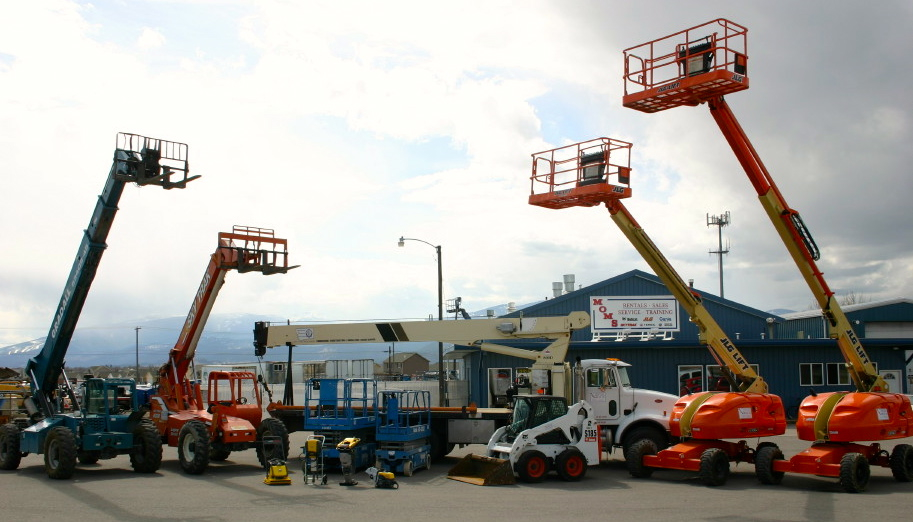Rental Company Near Me: Regional Solutions for Equipment Rentals
Optimize Your Spending Plan by Comprehending the Prices Related To Construction Devices Leasings
Recognizing the full range of prices linked with building tools leasings is important for maximizing your budget. What strategies can be employed to properly manage these costs and make sure a more effective rental experience?
Introduction of Rental Costs
When thinking about building equipment leasings, recognizing the connected prices is extremely important for reliable budgeting and project planning. Rental expenses can differ considerably based upon a number of factors, consisting of tools type, period of leasing, and area. The first rental cost usually mirrors the devices's market need and its connected functional capabilities, affecting the total expense.
Along with the base rental price, ancillary prices may develop, such as transport costs, gas additional charges, and maintenance fees. It is vital to account for these added expenditures to properly examine the total price of renting devices. In addition, the rental period can influence pricing; longer services may certify for discounted rates, while temporary leasings might incur greater everyday costs.

Break Down of Rental Prices
A comprehensive understanding of rental rates is essential for professionals and task supervisors aiming to optimize their spending plans. Rental rates for building and construction tools generally include a number of parts, including base rates, time-based charges, and usage fees.
Base rates are the core costs associated with the rental of the devices, usually identified by the type and size of the equipment. These prices can differ considerably, affected by elements such as devices need, accessibility, and regional market fads. Time-based charges, which may be daily, weekly, or monthly, serve to accommodate different project timelines and rental periods.
Additionally, rental prices may consist of usage costs, which apply when tools is used past a specified limit, making certain that the rental company can account for damage. Seasonal need changes can also influence rental prices, with peak building and construction seasons generally commanding higher costs.
Furthermore, recognizing the rental business's plans pertaining to maintenance and insurance policy can offer more insight right into the overall expense framework. By examining these components, specialists can make enlightened decisions, ensuring the option of rental tools straightens with both project needs and spending plan restraints.
Extra Costs to Consider
Comprehending the complexities of additional costs is important for specialists to manage their general service expenditures properly. Past the common rental rates, numerous additional charges can dramatically impact the overall expense of equipment leasing. These charges typically consist of distribution and pick-up costs, which can differ based upon range and logistics associated with moving the tools to and from the work website.
Furthermore, some rental companies may enforce fuel surcharges if the devices is returned with less gas than when rented out. It is additionally crucial to recognize possible cleaning fees, particularly for customized devices that needs extensive maintenance after usage.

Completely reviewing the rental arrangement and clearing up these additional costs ahead of time can help professionals prevent unanticipated costs and ensure that spending plans stay undamaged throughout the job lifecycle.
Repair And Maintenance Expenses
Routine maintenance and repair service expenses are commonly neglected variables that three point hitch backhoe can considerably affect the overall price of construction tools rentals. When leasing tools, it is important to take into consideration not only the rental charges but additionally the potential expenses related to keeping the machinery in optimum operating problem.
Numerous rental business consist of basic maintenance as component of the rental arrangement; however, much more considerable repairs or unforeseen failures can lead to additional costs. It's necessary to review the rental contract thoroughly to comprehend what upkeep solutions are covered and what Read Full Article duties drop on the occupant.
In addition, equipment that is not well-maintained can result in ineffectiveness on the task website, possibly boosting and triggering hold-ups job expenses. To alleviate these dangers, it is a good idea to carry out routine assessments and preserve open communication with the rental supplier relating to any type of problems that develop during use.
Insurance and Liability Prices
Insurance policy and obligation expenses are vital components that can significantly impact the total cost of building equipment rentals (forklift rental). These costs make certain that both the rental company and the client are secured from possible economic losses arising from accidents, damage, or theft during the rental period

Furthermore, clients must recognize any deductibles or exemptions in the insurance policy, as these can impact prospective out-of-pocket expenditures. Comprehending the terms and problems of any kind of insurance coverage is essential to stay clear of unexpected expenses. Inevitably, budgeting for insurance policy and liability costs can help guarantee a smoother rental experience and protect versus economic risks connected with building and construction jobs.
Conclusion
Finally, a detailed understanding of the prices related to building and construction tools services is important for efficient budget management. By evaluating rental prices, additional costs, maintenance expenditures, and insurance policy people, companies and demands can decrease unanticipated expenses. This tactical technique not just boosts cost-effectiveness but additionally makes certain that tasks advance smoothly and efficiently. Eventually, informed decision-making regarding tools rentals adds to the overall success of construction endeavors.
Rental costs can differ substantially based on numerous factors, including tools type, duration of service, and place (mini excavator rental). The rental duration can influence rates; longer leasings may certify for discounted prices, while temporary rentals may sustain higher day-to-day charges
By conducting extensive research study and engaging with trustworthy rental firms, service providers can efficiently browse the complexities of rental prices, inevitably maximizing their monetary resources.
Beyond the common rental prices, numerous auxiliary fees can significantly impact the total price of devices leasing. heavy equipment rentals Rental companies frequently provide obligation insurance that covers injuries to 3rd parties or damages to building, while equipment damages insurance coverage can cover the cost of repair services or substitute if the rented equipment is damaged.